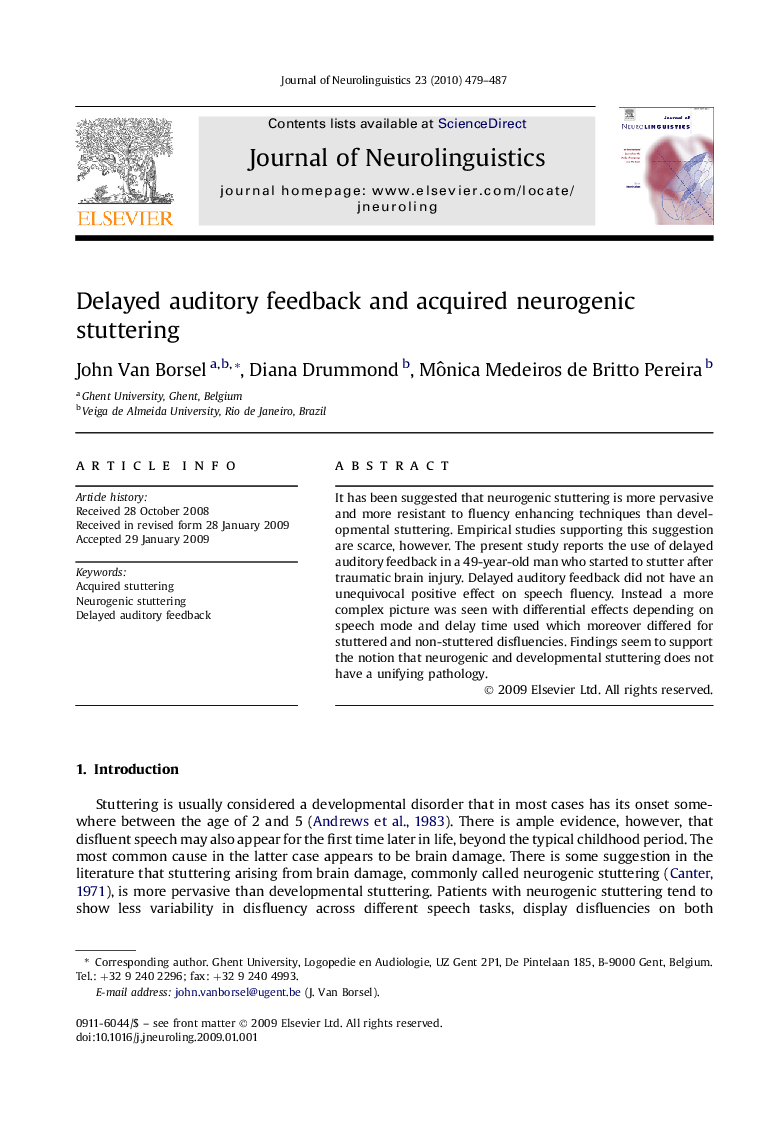| Article ID | Journal | Published Year | Pages | File Type |
|---|---|---|---|---|
| 912019 | Journal of Neurolinguistics | 2010 | 9 Pages |
Abstract
It has been suggested that neurogenic stuttering is more pervasive and more resistant to fluency enhancing techniques than developmental stuttering. Empirical studies supporting this suggestion are scarce, however. The present study reports the use of delayed auditory feedback in a 49-year-old man who started to stutter after traumatic brain injury. Delayed auditory feedback did not have an unequivocal positive effect on speech fluency. Instead a more complex picture was seen with differential effects depending on speech mode and delay time used which moreover differed for stuttered and non-stuttered disfluencies. Findings seem to support the notion that neurogenic and developmental stuttering does not have a unifying pathology.
Related Topics
Life Sciences
Neuroscience
Cognitive Neuroscience
Authors
John Van Borsel, Diana Drummond, Mônica Medeiros de Britto Pereira,
